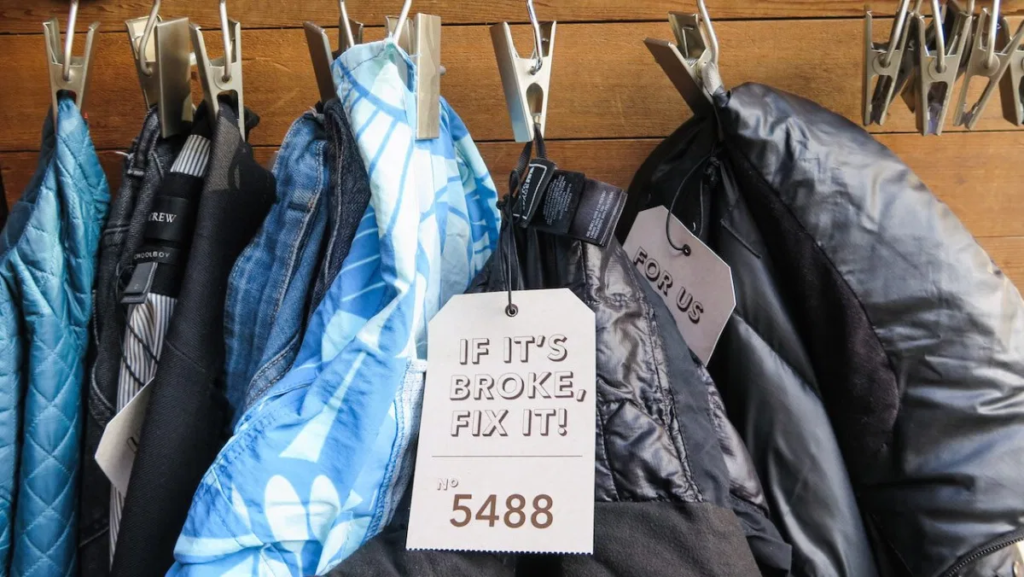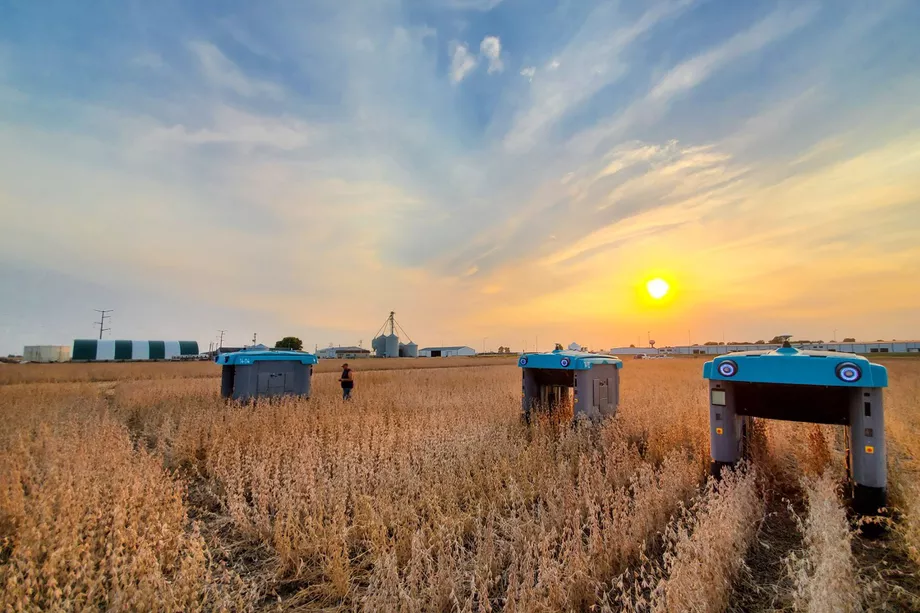
Morning All. We’re glad to see the back of 2020. So here is something a little different (and a little longer) from us this week. vThis week, more than ever, we would love to hear your thoughts. Drop us a response to this email with your predictions for the year ahead and we’ll feature them in our next edition.
In today’s edition:
🌍 Africa cashes in on innovation
🌾 The rise of super sustainable farming
⛽ The emerging Hydrogen economy
🔮 Eight Trends for 2021
1) Circularity goes mainstream
Fashion’s sustainability leaders made progress with the “Rs” – reducing, recycling, refurbishing, reselling and renting in 2020. Take Patagonia selling upcycled products alongside new ranges or H&M’s fiber recycler. In 2021 we see circularity moving from the fashion fringes to centre stage, with brands doubling down on efforts to adopt and scale circular strategies. Those who don’t will be left behind – In a recent McKinsey survey over 60% of consumers said environmental impact is a key factor in purchasing decisions. If that wasn’t incentive enough, a range of circular initiatives drafted by policymakers are in the pipeline (e.g. New Cotton Project). Measures such as the EU’s carbon border tax will also make the economics of onshore recycling more attractive.
What we think this will look like:
- Piloting of alternative materials and processes for circular systems;
- Partnerships with logistics companies, like Trove, to manage reverse logistics of buying back used items from consumers and reselling them
- Efforts to overcome consumer stigmas about purchasing recycled items e.g. by marketing circular items alongside conventional ranges

2) A revolution in big data and smart agriculture
Agriculture will continue to undergo a digital revolution in 2021. The use of big data (collected by sensor, imagery and supplier networks) and the adoption of smart agritech (i.e. Artificial Intelligence, Internet of Things, and robots) will drive the production of more food at reduced costs. We see big data and smart agritech making waves because of:
- Better decision making: through improved insights on changes in weather, rainfall, soil moisture and productivity zoning.
- Pesticide optimisation: Mitigating the environmental side-effects of pesticide use by helping farmers make decisions on what to apply, when and where.
- Food safety: Assessing crop health by monitoring temperature, humidity and chemicals allowing for faster detection of microbes and contamination.
The biggest challenge preventing widespread use of big data and agritech is cost and rural connectivity. However, Tech giants, like Microsoft, are increasingly driving the adoption of agritech across the USA, India, Africa and China through their AgriTech programme.

3) The Hydrogen economy expands
As countries compete to attain their net zero goals, we expect 2021 to be the year Hydrogen steps up on to the energy mix podium. Green Hydrogen (GH2) will see a hike in investment with the rise in stringent emission laws and the incoming 2021 Biden administration pledging to invest in clean energy. In the UK, the answer to an energy market dominated by natural gas is Hydrogen, the development of which is supported in the government’s 10-point plan.
We’re not saying that 2021 will be the year that Hydrogen sweeps in and totally replaces natural gas. However, with lowering renewable electricity costs (a key element in producing GH2) the business case for investment in GH2 production is stronger-than-ever. 2021 will mark the beginning of a 30 year journey for countries across the world reinventing their energy mix, with hydrogen forming a crucial part of their plans.
4) African innovation cashes in (particularly in FinTech)
African innovation was emphasised by a number of big-ticket mergers and acquisitions in 2020. WorldRemit made the largest investment ever in an African technology start-up: paying $500 million to acquire Sendwave, a remittance company that allows people in Europe and North America to send money to seven African countries and Bangladesh. Two months later U.S. payment giant Stripe paid $200 million for Paystack, a Nigerian payment-processing company.
In 2021, we expect to see an increase in big ticket acquisitions in Africa. With E-commerce growing across the continent, local payment platforms and FinTechs will drive investment, however we also expect to see:
- Uberisation of more services expanding the reach of the gig economy.
- Large-scale ed-tech enabling bite-sized learning on the go.
- Big tech muscling in to bring connectivity and digitisation across rural Africa
5) Regulatory approval of lab-grown meat seen across Asia and then the globe
When Singapore’s food regulator approved Eat Just’s lab-grown ‘chicken bites’ for public sale this year they opened the discussion on the future of ethical and low-carbon food – and spurred on dozens of companies developing lab-grown beef, pork and poultry. The cells used to produce the bites come from biopsies of live animals, supplied with plant nutrients to stimulate growth. Lab grown meat production still has its hurdles, namely cost and speed of production, but in 2021 we expect regulators in nations around the world to begin supporting the small-scale roll out and testing of lab-grown meats.
In retrospect, Singapore, a small country with imminent food security issues, seems like an obvious first candidate to recognise the opportunities of cell agriculture. We expect similar island nations such as Hong Kong and Japan to be next in line, in fact just last week – Mitsubishi Corp. partnered with Aleph Farms Ltd. to lay the groundwork for bringing lab-grown beef to Japan.

6) The growth of HealthTech innovation
The coronavirus pandemic has emphasised the need for improved technology in healthcare. These are some of the healthtech innovations (which were unheard of at the end of 2019) we expect to become common practice in 2021:
Virtual care and remote medicine: By the start of 2021, the number of virtual hospital visits has reached one billion in the US. Remote care removes the risk of infection, but also allows medical professionals to provide more patient consultations – a vital consideration for highly populated countries such as China and India.
Robotic and autonomous healthcare assistants: Working in hospitals or in care homes, reducing the risk of infection, but also reducing symptoms of loneliness and social isolation. Companion robots are already being introduced in UK care homes.
HealthTech in the workplace: Although working from home will continue in 2021, we expect workplaces to start preparing for a return to offices too, which will include enhanced biosecurity measures (i.e. sanitisation stations and screening technology) alongside quarantine measures at locations where staff are required on-site.

7) A harmonisation of Environmental Social and Governance (ESG) standards
A silver lining in the dark cloud of Covid-19 of 2020 was the pandemic’s acceleration of interest in ESG investing. A trend we predict will intensify in 2021, with investment being driven as much by risk management as it is activism.
Despite there being more dedicated ESG funds than ever before, investors are still faced with an “alphabet soup” of conflicting ESG reporting standards (ESG accounting). This makes it difficult to compare the sustainable credentials of investments on a “like for like” basis and opens the door to greenwashing. We saw progress in 2020: The World Economic Forum and Big Four accounting firms began to work on a framework linked to the UN’s sustainable development goals. We also saw the biggest players in the ESG data world (making up the aforementioned alphabet soup) join up to work on a unified ESG methodology, with progress already made (see here).
In 2021 we expect, and hope, to see harmonisation of frameworks into an easy-to-understand global standard. The reward for companies that engage in the debate early on will be a larger piece of growing sustainability-linked finance pie.
8) Super sustainable farming becomes a priority
2021 will be the start of a rebalancing process between food production and environmental conservation. Governments across the world are recognising the need for policy that supports sustainable food production, soil restoration and biodiversity conservation – practices termed “super sustainable farming”.
The UK are leading the way with sustainable agricultural policy, having released plans which herald the most significant changes in farming for 50 years. Starting in 2021, the Farming for the future policy supports producing nutritious food, profitably, while encouraging practices which improve biodiversity and reduce carbon emissions.
Sustainable food production for 2021 fits with broader consumer trends: 65% of consumers demand products that support sustainable living. Equally, governments are realising the financial value of natural processes (estimated at an average of $33 trillion per year) which are decimated by current agricultural practices. Expect a balancing act between intensified food production and regenerative farming practices.




